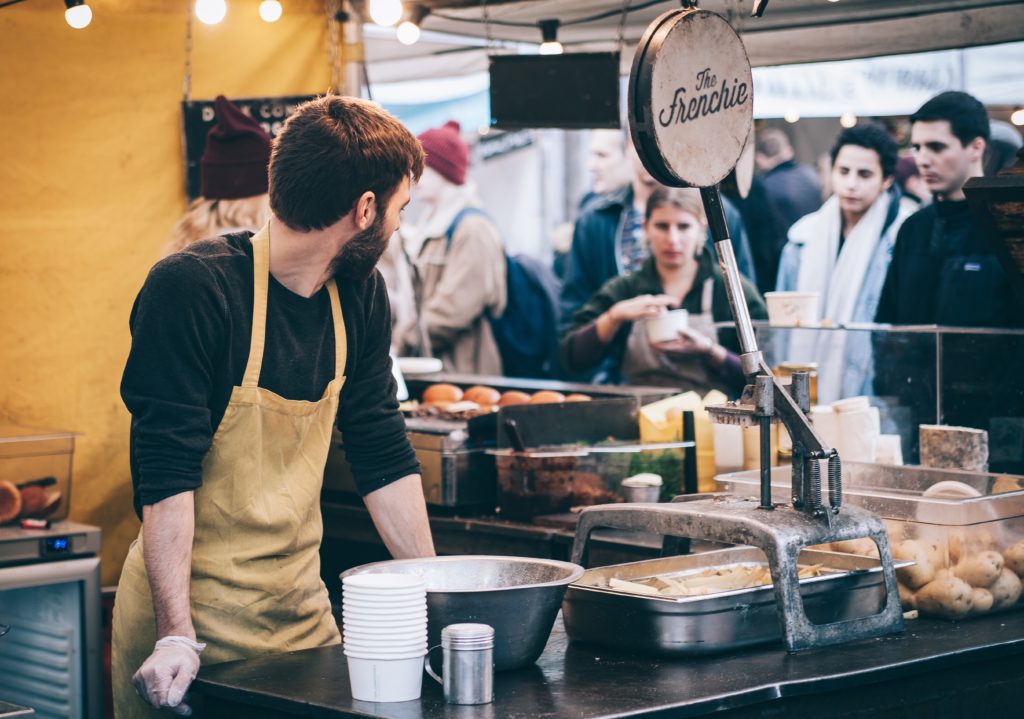The hospitality industry is well known for its long hours, intense pressure and punishing stress. On top of that, we know that alcoholism, substance abuse, bad diets and lack of exercise are rife among chefs. So, it’s no surprise that being a chef has become synonymous with being stressed.
In Australia most hospitality workers will agree that mental health issues are one of the biggest challenges in the industry. Yes, the industry is exciting, but with that excitement often comes pressure and high expectations. This pressure has been normalised in the mainstream media, but the professional kitchen is not a reality TV show and everyone in the industry needs to look out for themselves, and their mates.
If you’re worried about one of your colleagues or friends you should always encourage them to seek help, but what else can you do to help them out?
Nourish with food
This may seem ironic considering chefs cook for a living, but poor diet affects the health and wellbeing of a lot of chefs. So many chefs’ meals are eaten at work, so try ensuring chef meals at your workplace contain plenty of vegetables, a balance of foods, and are not eaten too late at night.
Talk about hours
Perhaps the biggest issue for chefs is overworking and exhaustion coupled with a salary that never reflects the number of hours actually worked. Often chefs may be paid for 45 hours per week but end up working closer to 60 with no extra pay. This brutal pressure can have damaging effects on the mental health of many chefs. The hospitality industry in particular has been slow to talk about the mental health issues this may cause, with a popular phrase in kitchens ‘Push on, chef’ encouraging chefs to ignore the issues and persevere. If your staff are struggling it’s time to make a change, or ask your boss for one.
Find social support
Chef hours can be quite isolating. While your non-chef friends are working 9-5 and taking weekends off, you’ll be working long nights and on weekends. These unsociable hours can sometimes lead to family conflict or feelings of loneliness, so it’s important chefs have a strong social network that will support them through any difficulties they’re having. Consider asking colleagues out for catch ups outside of normal work times.
Employ a healthy coping mechanism
The pressure in the kitchen can often trigger unhealthy behaviours. Stressed after a long service, chefs often don’t have the tools to deal with their stress and end up at the bar. If you’re noticing this pattern in your venue it may be worth suggesting some healthier outlets for the stress – often the best option for chefs is exercise (preferably outdoors).
‘Normalise’ the feelings
Unfortunately, the pressure-fuelled environment of the commercial kitchen is not new. For years mental health issues among back of house staff has been ‘swept under the rug’. Stigma of poor mental health prevents kitchen workers from asking for help. The best thing that you can do to help your colleagues and friends is to reduce this stigma, point out that you often feel the same way, employ empathy, let them know they are not alone.
Of course, there is no one-size-fits-all solution to any mental health issue. Everyone’s situation is a case-by-case circumstance. But as the hospitality industry seemingly has the ‘perfect storm’ of factors that may undermine mental health, it’s important to keep an eye on your mates (and yourself) so that the stigma is reduced and chefs can enjoy and balance their work.
If you need to talk to someone, call:
Lifeline on 13 11 14
MensLine Australia on 1300 789 978
Beyond Blue on 1300 22 46 36
